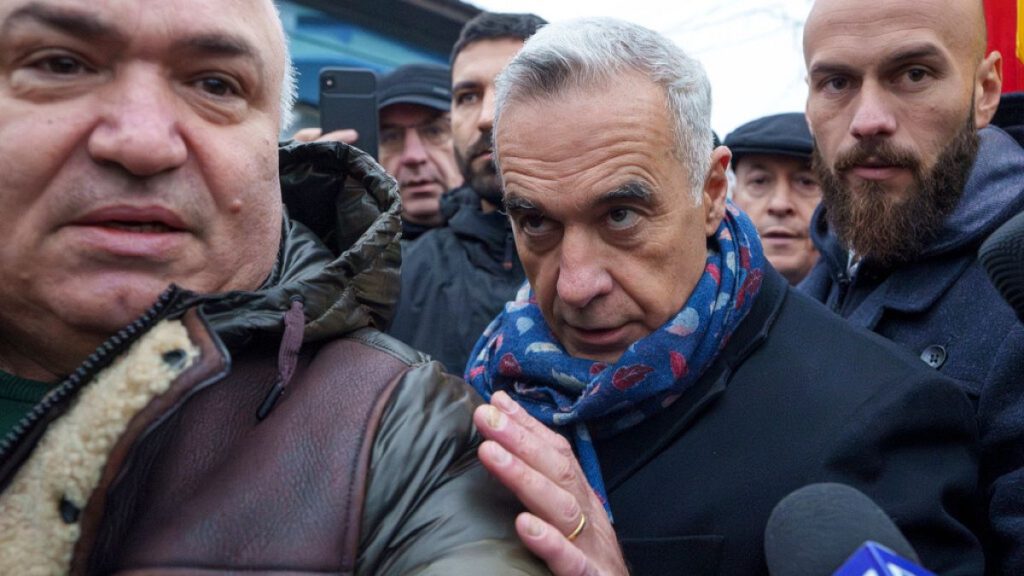The Romanian political landscape has been shaken by a burgeoning scandal involving former presidential candidate Călin Georgescu and his association with a controversial private military contractor, Horațiu Potra. The scandal erupted following the release of photographs depicting Georgescu and Potra together, raising serious questions about Georgescu’s affiliations and judgment, particularly in light of Potra’s recent arrest and ongoing investigation for weapons offenses and incitement to illegal gatherings. The timing of the scandal is especially sensitive given the recent annulment of the presidential election in which Georgescu emerged as the initial frontrunner, an election marred by allegations of Russian interference aimed at bolstering Georgescu’s candidacy. This connection between Georgescu and an individual with a potential propensity for inciting unrest casts a long shadow over the already turbulent Romanian political scene.
The emergence of the photographs linking Georgescu and Potra has ignited a firestorm of controversy. Potra, a former French Foreign Legion mercenary and owner of a private military company, was recently apprehended by Romanian authorities along with twenty other individuals en route to Bucharest. Police discovered an arsenal of edged weapons, two pistols, significant sums of money, laptops, storage media, and a drone in their possession. Prosecutors allege that Potra and his associates were planning to instigate violence and reward participants at an unauthorized public gathering, potentially targeting politicians and journalists whose names were found on lists recovered by authorities. This revelation has sparked concerns about a potential plot to destabilize the country, especially in the aftermath of the annulled election and amidst ongoing concerns about external interference in Romanian politics.
Georgescu’s initial response to the photographs was a denial of any acquaintance with Potra. However, he later acknowledged the authenticity of the images but claimed a lack of recollection regarding the meeting, attributing it to the passage of time. This shift in stance has further fueled public distrust and suspicion, with critics questioning Georgescu’s honesty and transparency. The incident has also raised questions about the extent of Georgescu’s connections within potentially extremist circles and whether these associations influenced his political platform and campaign strategy. The unfolding scandal threatens to further erode public trust in the integrity of the Romanian political system and underscores the vulnerability of democratic processes to manipulation and intimidation.
The Romanian authorities’ investigation into Potra’s activities focuses on a range of charges, including possession of illegal weapons and ammunition, as well as public incitement to unlawful gatherings. Prosecutors assert that the seized items were intended for use in inciting and rewarding participants in a planned illegal assembly aimed at disrupting public order. The discovery of lists containing names of politicians and journalists adds a chilling dimension to the investigation, suggesting a potential targeting of individuals critical of certain political figures or narratives. The investigation into Potra’s network and the potential motives behind the alleged planned disruption remains ongoing, with authorities working to uncover the full extent of the plot and its potential implications for national security.
While Potra’s defense lawyers maintain that the charges against their client are unrelated to Georgescu, the timing of the photographs’ release and the context of the annulled election heavily laden with allegations of foreign interference have created a significant public perception problem for the former presidential candidate. The incident has raised concerns about the potential for political figures to exploit social unrest and manipulate public sentiment for personal gain. The scandal underscores the critical importance of transparency and accountability in democratic processes and the need for vigilant monitoring of potential threats to the integrity of elections and the rule of law.
The Georgescu-Potra scandal represents a critical juncture in Romanian politics. It highlights the complexities of navigating a landscape potentially influenced by external actors seeking to undermine democratic institutions. The ongoing investigation into Potra’s activities and the public scrutiny of Georgescu’s affiliations will undoubtedly shape the future trajectory of Romanian politics. The incident serves as a stark reminder of the fragility of democratic systems and the importance of upholding the principles of transparency, accountability, and the rule of law in safeguarding against those who seek to exploit vulnerabilities for personal or political gain. The long-term consequences of this scandal will depend on the thoroughness of the investigation, the responsiveness of the Romanian justice system, and the resilience of Romanian civil society in demanding accountability and upholding democratic values.














